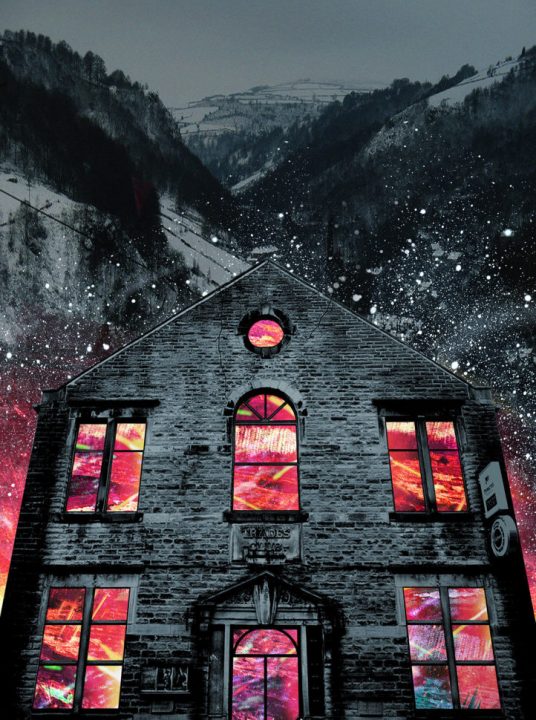After the government announced a £500m support package for the stricken arts and culture sector, which has been hit hard by the Covid-19 crisis, ministers have been asked to make sure co-ops are eligible for help.
The issue is a pressing one, with venues – co-operative and otherwise – citing the continued lockdown as a threat to their survival. Along with the loss of livelihood for venue staff and for performers, the arts are an important economic sector, a key element to the social fabric and an important tool in education and outreach work to young people and marginalised communities.
Acknowledging this, the government grants programme is part of a £1.57bn package to protect the UK’s culture and heritage sectors from the economic impacts of Covid-19. It offers cultural organisations support over a six month period to ensure that by 31 March 2021 they can reopen – either fully or partially – or operate on a sustainable, cost-efficient basis until they are able to reopen at a later date.
Organisations can apply for grants between £50,000 and £3m.
In a letter to Oliver Dowden, secretary of state for culture, media and sport, Co-operatives UK chair Don Morris said: “There are 87 cultural organisations with a collective turnover of £5.3m in England that are registered with the Financial Conduct Authority as co-operatives or community benefit societies.
“These cultural organisations form an important part of the cultural economy, creating and supporting jobs. They work on the ground with communities or are music and arts venues supporting the night-time economy. Without access to the Culture Recovery Fund, many risk closure by March 2021.
“We are asking the government to urgently amend the criteria to include organisations that are registered as co-operative or community benefit societies and listed on the Mutuals Public Register.”
Arts co-ops have responded to the crisis in different ways. North Wales Music Co-operative, Denbighshire Music Co-operative and Wrexham Music Co-operative – a group of co-ops run by music teachers to offer singing and instrumental lessons in schools – have taken the online route.
Supported by the Welsh government, they spent two months setting up a teaching platform – totally-music.com – which enables face-to-face lessons for pupils in their homes.
The artistic lead of the project, guitarist Wyn Pearson, says: “A project like this would normally have taken several months to complete, if not longer. But we have managed to get it up and running within weeks, which is a real achievement.
“We’re all extremely proud of the service and the opportunities it offers to children who may not otherwise have access to music lessons. The aim is to provide access to high quality music resources, with a focus on fun.”
For physical venues, lockdown offers different challenges. Hebden Bridge Trades Club, a member-owned music venue in West Yorkshire, has run a crowdfunding appeal to help cover its costs.

The venue dates back to 1924, when it was run by local trade unions, and was formally registered as a members’ co-op in 2016. It has hosted gigs by the likes of Patti Smith, Buzzcocks, Laura Marling, Fairport Convention and Lee Scratch Perry, and has been a regular finalist in the NME’s Small Venue of the Year Awards.
But like other venues it was forced to close its doors when the Covid-19 pandemic broke out, and has not been able to reopen.
A note on its website says: “We consider ourselves to be a community venue first and foremost, and as such we see ourselves as having a duty to act in a responsible manner and safeguard all our members and guests.
“While we would like to open and see you all again as soon as possible, we also want to be sure we can do so safely and in a way that ensures the club remains financially viable. We do not feel that the current guidelines enable us to adequately achieve this yet.”
Narrow corridors and a lack of outdoor space make it difficult for the club to maintain social distancing measures and even opening smaller sections like the Member’s Bar would be “a very complex undertaking,” it adds.
Its rent and bills are also currently renegotiated to cheaper rates or deferred on the basis that it is closed.
Its crowdfunder says: “As a socialist, not-for-profit, community co-operative, we do not have huge reserves to draw upon to ensure that we get through this period. Even with potential help from the government, we face uncertain and challenging times, and as we write this, do not know the precise extent of the financial support that we might receive.
“Your donations will primarily be used to pay our running costs until we are able to re-open. After securing our future, we would use any additional funds to undertake long-overdue refurbishments, which includes potential works to make the Trades Club more accessible and inclusive.”
It adds: “It has become very clear recently that music venues will be one of the very last businesses to be able to reopen and the possible restrictions that come with it could be severely damaging to the long term future of our much-loved club.”
Newcastle’s Globe – the community-owned home of the Jazz Co-op – has also kept its doors closed but since July has been hosting online gigs after buying new sound and video equipment to enable high quality recording.
The Jazz Co-op says: “We are doing a lot of work inside The Globe that will help us to accommodate customers safely and within government guidelines. We are developing new training for staff and volunteers. We are also exploring Covid-safe ways of providing our popular courses, workshops and jam sessions.”
It is also accepting donations to help it get the venue ready to reopen.
Also staying closed but staging online events is Komedia – the co-op comedy venue in Brighton. Virtual shows include its weekly Sundae Club for children; it is also staging socially distanced outdoor events on Brighton beach.